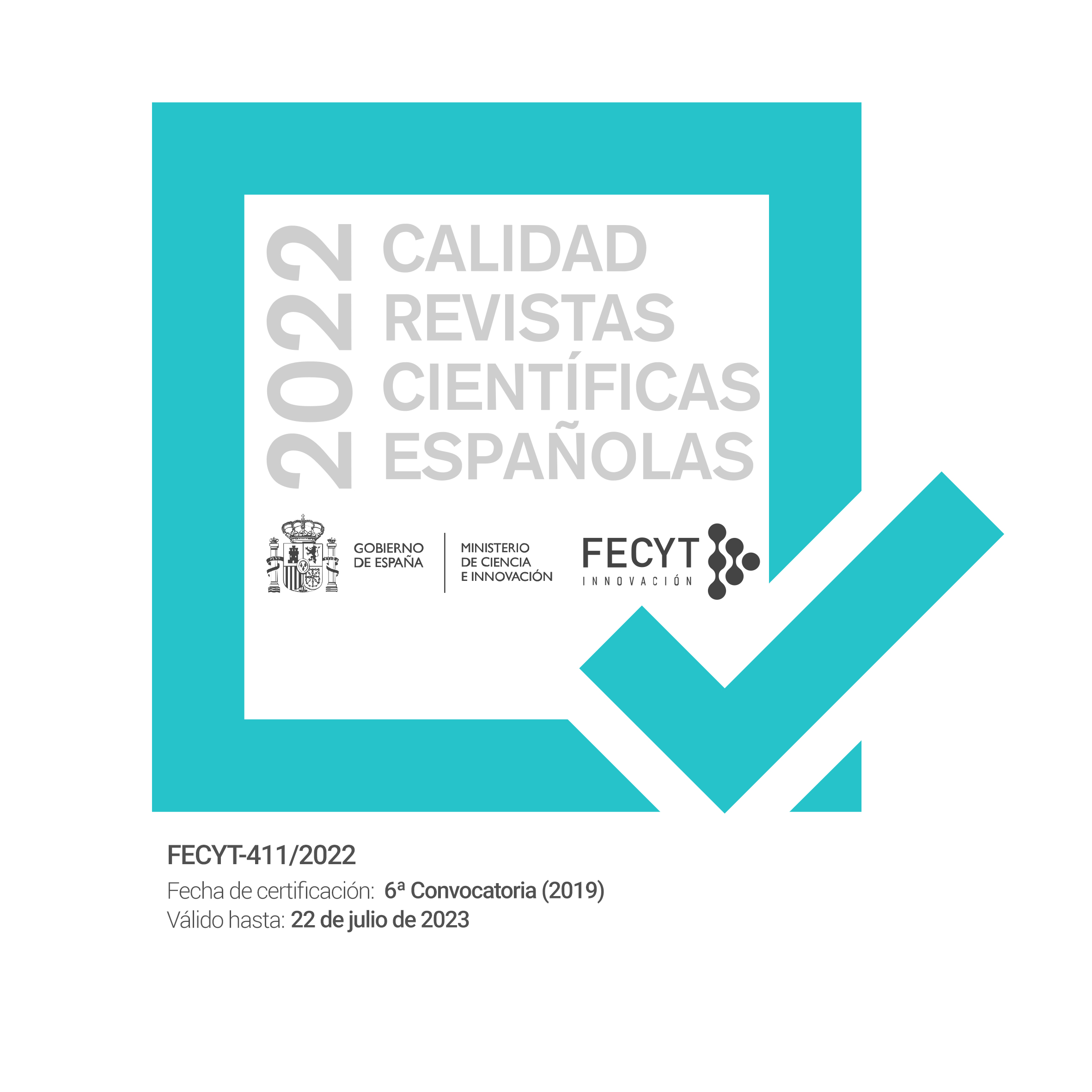Franco: la violencia y la simplificación de España
DOI:
https://doi.org/10.53351/ruhm.v7i13.378Palavras-chave:
Franco, mito, guerra civil, franquismo, dos EspañasResumo
Título: Franco: la violencia y la simplificación de España
Title: Franco: violence and simplification of Spain
[ES] Resumen: ¿Cómo cambió Franco la historia de España? Este artículo sostiene que su poder exigía la imposición de una sociedad simplificada que negase la diversidad cultural y política del país. Esta simplificación excluyó a quienes no cabían en el discurso oficial y a los intereses materiales, incluyendo el derecho a la vida y a comer, de millones de personas. Franco entendió y limitó la vida pública española, más prometedor me parece explorar la conexión de a) la formación profesional/vital de Franco, esto es, el africanismo, y sus relaciones profesionales y personales políticas antes de la Guerra Civil y b) las ideas y hasta ideologías contemporáneas que sustentaron, racionalizaron y afectaron a las políticas del régimen desde el momento en que comienza la construcción de este hasta la muerte del dictador. Una vez discutidos estos dos aspectos, procederemos a ver cómo pudieron afectar a las políticas concretas del régimen, y en particular cómo la imposición de una elección personal de Franco –mantener el poder mediante el ejercicio del terror- marcó la política general del régimen.
La única forma de imponer esta simplificación fue mediante el uso primero y la amenaza después de la violencia masiva. Esta fue la esencia de política de Franco pero también su elección personal. Franco, convertido en Caudillo, fue antes que nada el terror. Esta fue su mayor y más innegable contribución a la historia del país.
Palabras clave: Franco, mito, guerra civil, franquismo, dos Españas.
Abstract: This article discusses the contribution of Franco to the history of Spain. It starts by arguing that exploring his ideology is not the best way to understand what he did and why. On the contrary, it is the exploration, first, of his professional upbringing and interests, plus his opportunism, which gives us the keys to understanding the Caudillo's policies.What hose policies had in common was that they were based on the negation of Spain's diversity. We cannot truly discern if a different political leader emerging from the Civil War, even another right-wing military dictator, would have followed similar policies. What we know is that Franco achieved his goal of maintaining permanent power by artificially using the discourse of two opposing Spains: the real one that he lead and the “anti-Spain”, defeated in the Spanish Civil. This myth of the “two Spains” was created in the nineteenth century but took on a new meaning in the twentieth. It was useful not only for cementing Franco's power but also for covering the real basis of his power: the terrorizing of his enemies (and of Spanish society at large) and the protection of the material and spiritual interests of his supporters. That myth negated the suppressed diversity of Spanish society, and it could be maintained only by force. Violence, rather than ideology, was thus the minimum of the Francoist regime and Franco´s main contribution to the country´s history. Terror should be at the center of any explanation of Franco´s policies, and should be at the center of explaining his contribution to Spain´s history. Franco chose terror, never repented of his terrorist acts and threatened Spaniards with terror if they did not follow his leadership. Franco meant terror like no other leader in the history of the country.
Keywords: Franco, myth, Civil War, francoism, two Spains.
Downloads
Downloads
Publicado
Edição
Secção
Licença
Licencia Creative Commons Atribución-NoComercial-SinDerivar 4.0 Internacional
Esto es un resumen legible (y no un sustitutivo) de la licencia.
Usted es libre para:
Bajo los siguientes términos:
-
Atribución — Usted debe darle crédito a esta obra de manera adecuada, proporcionando un enlace a la licencia, e indicando si se han realizado cambios. Puede hacerlo en cualquier forma razonable, pero no de forma tal que sugiera que usted o su uso tienen el apoyo del licenciante.
-
NoComercial — Usted no puede hacer uso del material con fines comerciales.
-
Sin Derivar — Si usted mezcla, transforma o crea nuevo material a partir de esta obra, usted no podrá distribuir el material modificado.
No hay restricciones adicionales — Usted no puede aplicar términos legales ni medidas tecnológicas que restrinjan legalmente a otros hacer cualquier uso permitido por la licencia.








